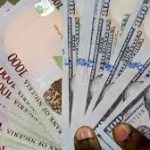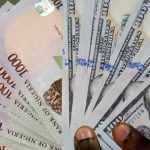The naira surged against the US dollar in the parallel market, closing at N1640/$1 on Wednesday, December 4, 2024. This marks a significant 5.2% or N90 gain compared to the previous day’s rate of N1730/$1.
The appreciation comes as trading commenced on the newly introduced Enhanced Foreign Exchange Market System (EFEMS), which Bureau De Change (BDC) operators believe will enhance transparency and regulatory oversight in the forex market.
Exchange Rate Trends
According to market data, the exchange rate for dollar inflows on the parallel market stood at N1640/$1, while cash transactions closed slightly higher at N1664/$1 at the end of trading on Wednesday.
The Central Bank of Nigeria’s (CBN) EFEMS initiative aims to consolidate Nigeria’s forex markets, replacing the former Investors and Exporters (I&E) window. Early trading under EFEMS reportedly saw supply outstrip demand, leading to a sharp appreciation in the naira’s value.
Official data indicates mixed rates on different platforms:
– The exchange rate on the official market closed at N1,595/$1.
– The CBN website displayed a NFEM Simple Average rate of N1613.69/$1 on December 4.
– The previous day’s rate on EFEMS stood at N1,643.15/$1, while it closed at N1,608/$1 on Wednesday.
While trading volumes remain unofficial, sources suggest a robust start for EFEMS, raising optimism about improved liquidity and stability in the forex market.
Market Reforms and Policy Updates
The launch of EFEMS comes with sweeping changes introduced by the CBN to address inefficiencies and market distortions in Nigeria’s forex operations. Key highlights of the revised guidelines, issued in a circular dated November 29, 2024, include:
– Unified Forex Window: EFEMS replaces multiple forex windows such as the I&E FX Window, SME Window, and Invisible Window.
– Transparency: Daily FX rates will be published through the EFEMS platform, accessible to the public.
– Market Participation:The roles of participants are redefined, emphasizing compliance and transparency.
Experts note that sustaining the momentum achieved in the first two days of EFEMS trading will depend on robust policy backing and the CBN’s commitment to maintaining liquidity and curbing speculative trading. These measures are crucial for addressing long-standing inefficiencies in Nigeria’s forex markets.
Outlook
The success of EFEMS could mark a turning point for Nigeria’s forex landscape, fostering confidence among market participants. However, experts caution that achieving long-term stability will require consistent policy implementation and a balanced supply-demand dynamic to prevent potential distortions.










